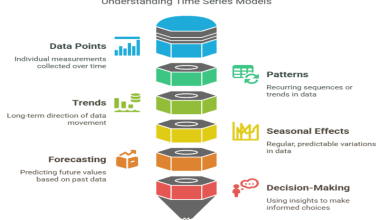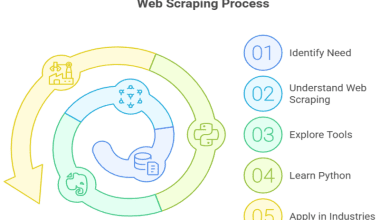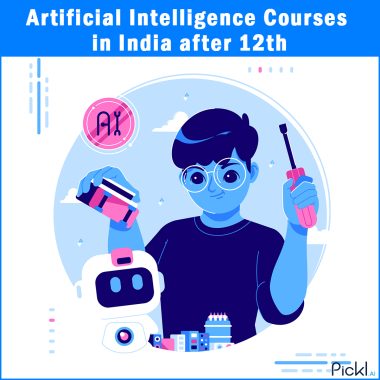Summary: AI agent represents the next generation of intelligent automation. This guide covers what AI agents are, how they work, their types, benefits, risks, and future trends. By understanding these concepts, businesses and professionals can leverage AI agent tools and platforms to drive efficiency, innovation, and growth in 2025.
Introduction
Picture this: You’re planning a business trip, juggling meetings, travel times, and hotel bookings. Instead of spending hours online, you simply tell your digital assistant your requirements. In seconds, the assistant—powered by the latest AI agent—organizes your itinerary, books your flights, reserves your hotel, and even schedules your meetings.
This is not just a futuristic dream; it’s the reality of AI agents in 2025. As these intelligent systems become more capable and autonomous, they’re revolutionizing how we work, solve problems, and interact with technology. This comprehensive guide explores everything you need to know about AI agent , from how they work to their future impact.
Key Takeaways
- AI agents autonomously sense, decide, and act to achieve goals.
- Multiple agent types suit various business tasks and environments.
- Benefits include productivity, scalability, and personalized user experiences.
- Address risks like bias, security, and over-reliance on automation.
- Future AI agents will collaborate, learn faster, and integrate everywhere.
What Are AI Agents?
AI agents are autonomous digital systems that perceive their environment, make decisions, and act to achieve goals. Unlike basic automation, they use advanced reasoning and learning, adapting to changing circumstances. Their versatility makes them essential across industries, from customer service to logistics and healthcare.
Autonomous Operation
AI agents function independently, analyzing data and executing tasks with minimal human input. This autonomy allows businesses to automate complex processes, reduce manual intervention, and enhance efficiency. By handling routine and repetitive work, AI agents free up human workers for more strategic, creative, and high-value activities.
Goal-Oriented Behavior
Designed to achieve specific objectives, AI agents focus on outcomes like optimizing workflows, improving customer experiences, or managing resources. Their ability to set, pursue, and adapt goals makes them highly effective in dynamic environments, ensuring organizations remain agile and competitive in a fast-changing digital world.
Adaptive Intelligence
AI agents continuously learn from experience and feedback, refining their decisions and actions over time. This adaptive intelligence enables them to handle new challenges, respond to unexpected events, and improve performance, making them reliable partners for businesses seeking innovation and resilience.
How AI Agents Work
AI agents operate through a sense-think-act cycle. They sense their environment, process information using reasoning paradigms, and act to achieve goals. This structured workflow enables them to function autonomously and efficiently, handling both simple and complex tasks across various domains.
Sense
AI agents collect data from sensors, APIs, or databases, forming a comprehensive understanding of their environment. This sensory input is crucial for accurate decision-making, as it provides real-time context and ensures the agent’s actions are relevant, timely, and aligned with organizational objectives.
Think
In this stage, AI agents analyze gathered data using algorithms and reasoning models. They evaluate options, predict outcomes, and plan the best course of action. This cognitive process enables agents to solve problems, optimize workflows, and adapt strategies in response to changing circumstances or new information.
Act
After deciding on the best action, the AI agent executes tasks such as sending notifications, making purchases, or adjusting system settings. This ability to act autonomously and efficiently is what sets AI agents apart from traditional automation, allowing them to deliver real-world value across industries.
Agentic vs. Non-Agentic AI Chatbots
Agentic AI agents and non-agentic chatbots differ in autonomy, reasoning, and complexity. While both interact with users, agentic AI agents can independently initiate actions and manage complex workflows, whereas non-agentic chatbots are limited to reactive, scripted responses.
Autonomy
Agentic AI agents initiate tasks independently, anticipating user needs and acting proactively. In contrast, non-agentic chatbots require direct user input to function, making them less effective in dynamic or fast-paced environments where real-time, autonomous action is essential for success.
Complexity Handling
Agentic AI agents manage multi-step, complex workflows, such as booking travel or coordinating projects. Non-agentic chatbots are limited to simple Q&A or basic customer service, lacking the sophistication required to handle intricate processes or deliver comprehensive solutions.
Learning and Adaptation
Agentic AI agents learn from interactions and feedback, continuously improving their performance. Non-agentic chatbots typically follow static, pre-set scripts, with limited ability to adapt or evolve, resulting in less personalized and effective user experiences.
Reasoning Paradigms
AI agents utilize various reasoning paradigms to make decisions, ranging from simple rule-based logic to advanced learning-based approaches. These paradigms determine how agents interpret data, plan actions, and adapt to new challenges, enabling them to solve increasingly complex problems.
Rule-Based Reasoning
Agents follow explicit “if-then” rules to make decisions. While effective for straightforward tasks, this approach lacks flexibility and struggles with ambiguity or rapidly changing environments, limiting its usefulness for more complex or dynamic applications.
Model-Based Reasoning
Agents build internal models of their environment, allowing them to predict outcomes and plan actions. This paradigm enables agents to handle uncertainty, adapt to new situations, and make informed decisions even when faced with incomplete or evolving data.
Goal-Based Reasoning
Agents select actions that move them closer to predefined goals. This strategic approach ensures purposeful behavior, enabling agents to prioritize tasks, allocate resources efficiently, and achieve desired outcomes in alignment with organizational objectives.
Utility-Based Reasoning
Agents evaluate the utility or benefit of different actions, choosing those that maximize overall outcomes. This paradigm supports optimal decision-making, balancing competing priorities and ensuring the best possible results for users and organizations.
Learning-Based Reasoning
Agents learn from past experiences and feedback, continuously refining their decision-making processes. This adaptive paradigm allows agents to improve over time, handle new challenges, and deliver increasingly effective solutions in dynamic environments.
Types of AI Agents
AI agents come in various types, each suited to specific tasks and industries. Understanding these types helps organizations select the right agent for their needs, ensuring optimal performance and value.
Simple Reflex Agents
These agents react instantly to specific stimuli without considering context or history. Common in basic automation, they are suitable for straightforward tasks like temperature control but lack the sophistication needed for complex decision-making.
Model-Based Reflex Agents
By maintaining an internal model of the environment, these agents can consider past states and predict future outcomes. This capability makes them effective in dynamic settings, such as self-driving cars navigating traffic or robots operating in unpredictable environments.
Goal-Based Agents
These agents plan and execute actions to achieve specific objectives. Their ability to set, pursue, and adapt goals makes them ideal for applications like personal assistants, project management tools, and intelligent scheduling systems.
Utility-Based Agents
Focusing on maximizing overall benefit, these agents evaluate multiple factors to choose the best actions. They are commonly used in resource management, financial planning, and other scenarios where balancing competing priorities is essential.
Learning Agents
These agents improve their performance through experience and feedback, adapting to new challenges and environments. Examples include spam filters that evolve with new threats and recommendation systems that personalize content over time.
Hierarchical Agents
Combining multiple agent types, hierarchical agents tackle complex, layered tasks. They are often used in large-scale systems, such as hospital management platforms that coordinate staff, patients, and resources simultaneously.
Multi-Agent Systems (MAS)
In these systems, teams of agents collaborate to solve large-scale problems. MAS are ideal for applications like autonomous drone fleets, distributed logistics, and collaborative robotics, where coordination and cooperation are critical.
Benefits of AI Agents
AI agents deliver significant advantages, from increased productivity to enhanced personalization. Their ability to automate complex tasks, operate around the clock, and scale effortlessly makes them invaluable assets for modern organizations.
Increased Productivity
By automating repetitive and complex tasks, AI agents free human workers for higher-value activities. This boost in productivity allows organizations to focus on innovation, strategy, and customer engagement, driving business growth and competitiveness.
24/7 Availability
By integrating AI chatbot technology with intelligent AI agents, companies can enhance customer satisfaction, reduce downtime, and ensure consistent performance around the clock.
Scalability
AI agents can handle thousands of tasks or users simultaneously, making them ideal for growing businesses or large-scale operations. Their scalability enables organizations to expand services without proportionally increasing costs or resources.
Personalization
By analyzing user data, AI agents deliver tailored experiences and solutions. This personalization enhances customer satisfaction, loyalty, and engagement, helping businesses build stronger relationships and drive repeat business.
Cost Savings
Automation reduces operational costs, minimizes errors, and optimizes resource allocation. These cost savings can be reinvested in innovation, employee development, or customer service, further strengthening the organization’s competitive position.
Risks and Limitations
While AI agents offer immense value, they also present risks and limitations. Addressing these challenges is essential for responsible, effective, and ethical adoption in any organization.
Bias and Fairness
AI agents can inadvertently reinforce existing biases if trained on unrepresentative data. This can lead to unfair or discriminatory outcomes, making it crucial to monitor, audit, and update models regularly to ensure fairness and equity.
Security Vulnerabilities
Autonomous agents are attractive targets for cyberattacks. Without robust security measures, they risk data breaches, unauthorized access, and operational disruptions, potentially causing significant harm to organizations and users.
Transparency Issues
Complex reasoning and decision-making processes can make it difficult to understand or audit agent actions. Ensuring transparency and explainability is essential for building trust and maintaining accountability in AI-driven systems.
Over-Reliance on Automation
Excessive dependence on AI agents may reduce human oversight and critical thinking. Maintaining a balance between automation and human judgment is vital to prevent errors, missed opportunities, or unintended consequences.
Technical Limitations
Some tasks still require human intuition, creativity, or emotional intelligence—capabilities that current AI agents cannot fully replicate. Recognizing these limitations helps organizations deploy agents where they are most effective.
Future of AI Agents
The future of AI agents is marked by greater autonomy, collaboration, and integration. As technology advances, agents will become even more capable, transforming industries and reshaping how we interact with the digital world.
Greater Autonomy
Future AI agents will independently manage complex, multi-step workflows, reducing the need for human intervention. This increased autonomy will enable organizations to automate more processes and focus on strategic initiatives.
Agent Collaboration
Teams of agents will work together to solve large-scale challenges, from logistics to healthcare. Collaborative agents will coordinate actions, share information, and optimize outcomes, driving efficiency and innovation across industries.
Human-Agent Teaming
AI agents will become trusted partners, working alongside humans to provide recommendations and handle routine tasks. This collaboration will enhance productivity, decision-making, and job satisfaction for human workers.
Smarter Learning
Agents will learn faster and adapt to new environments with minimal data, making them more versatile and effective. Advances in machine learning will enable agents to tackle increasingly complex problems and deliver better results.
Ubiquitous Integration
AI agents will be embedded across all aspects of daily life and business, from smart homes to enterprise platforms. This widespread integration will make intelligent automation accessible to everyone, driving widespread adoption and impact.
Best Practices for Using AI Agent Tools and Platforms
To maximize the benefits and minimize the risks of AI agents, organizations should follow best practices for deployment, management, and oversight. These guidelines ensure responsible, effective, and ethical use of AI agent tools and platforms.
Start Small and Scale Gradually
Begin with simple, well-defined tasks to test agent performance before expanding to more complex applications. This approach allows organizations to learn, adapt, and build confidence in AI agent capabilities.
Ensure Transparency and Explainability
Use tools that provide clear explanations for agent decisions, building trust and facilitating audits. Transparent systems help stakeholders understand how agents operate and make it easier to identify and correct errors.
Monitor and Audit Regularly
Continuously track agent performance, updating models and processes to prevent drift or emerging biases. Regular monitoring ensures agents remain effective, fair, and aligned with organizational goals.
Prioritize Security
Implement robust security measures to protect agents from unauthorized access and data breaches. Secure systems safeguard sensitive data and maintain operational integrity.
Maintain Human Oversight
Keep humans involved in critical decisions, combining agent autonomy with human judgment for optimal results. Human oversight ensures accountability and prevents unintended consequences.
Conclusion: Embrace the AI Agent Revolution
AI agent and similar technologies are transforming industries, automating complex tasks, and enhancing productivity. By understanding their capabilities, risks, and best practices, you can harness their power for your organization or career.
Take Action for the Future
Ready to lead in the AI-driven future? Explore our AI agent platform or enroll in our AI agent tools course to gain hands-on expertise. Stay ahead of the curve—embrace the AI agent revolution and shape the future of intelligent automation for your business or career.
Frequently Asked Questions
What Does an AI Agent Do?
An AI agent autonomously perceives its environment, makes decisions, and executes tasks to achieve specific goals. It automates workflows, analyzes data, provides recommendations, and interacts with users or other systems, increasing efficiency and productivity across industries.
What are the 5 types of Agents in AI?
The five main types are Simple Reflex Agents, Model-Based Reflex Agents, Goal-Based Agents, Utility-Based Agents, and Learning Agents. Each type is suited to different tasks and complexity levels, offering a range of solutions for various applications.
Who are the Big 4 AI Agents?
In 2025, the leading AI agent platforms are OpenAI’s GPT-based agents, Google’s Gemini, Microsoft Copilot, and Anthropic’s Claude. These platforms power a wide range of agentic applications across industries, setting the standard for innovation and capability.
What is the Salary of an AI agent?
AI agents themselves don’t earn salaries. However, professionals developing and managing AI agents can expect average annual salaries between $100,000 and $180,000 in 2025, depending on expertise, location, and industry demand.



